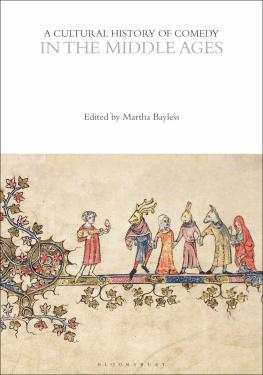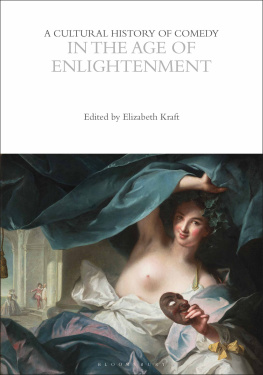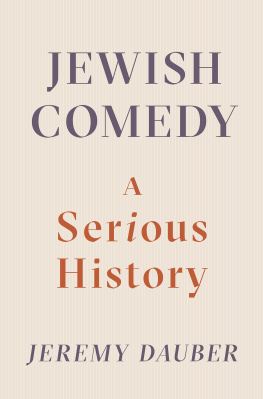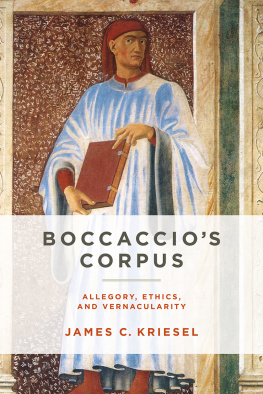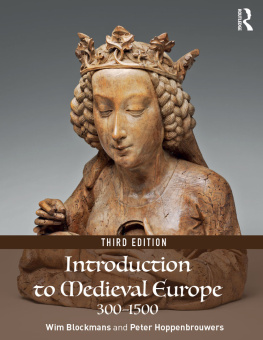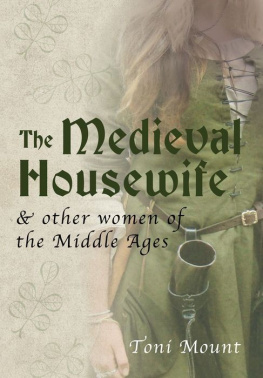
A CULTURAL HISTORY
OF COMEDY
VOLUME 2
A Cultural History of Comedy
General Editors: Andrew McConnell Stott and Eric Weitz
Volume 1
A Cultural History of Comedy in Antiquity
Edited by Michael Ewans
Volume 2
A Cultural History of Comedy in the Middle Ages
Edited by Martha Bayless
Volume 3
A Cultural History of Comedy in the Early Modern Age
Edited by Andrew McConnell Stott
Volume 4
A Cultural History of Comedy in the Age of Enlightenment
Edited by Elizabeth Kraft
Volume 5
A Cultural History of Comedy in the Age of Empire
Edited by Matthew Kaiser
Volume 6
A Cultural History of Comedy in the Modern Age
Edited by Louise Peacock

CONTENTS
INTRODUCTION
Random curious marginal drolleries. The Maastricht Hours.
Canines besiege a monkeys castle. The Maastricht Hours.
CHAPTER ONE
A monk pulls up his habit. Gregory IX, Decretals.
A figure defecating into a chalice. Late medieval mural painting, Bjrklinge Church, Uppland, Sweden.
Pig playing the organ. Late medieval mural painting, Hrnevi Church, Uppland, Sweden.
CHAPTER TWO
Marginal grotesque Hercules. Anjou Bible.
Marginal grotesque hunting scene. Anjou Bible.
Marginal grotesque of a man on a blue horse. Anjou Bible.
Marginal grotesque people and animals. Anjou Bible.
Marginal grotesque rabbit hunter. Anjou Bible.
CHAPTER THREE
Masked performers. Le Roman dAlexandre.
Laughing head carving. York Minster Cathedral Chapter House.
Monkey funeral. York Minster Cathedral Pilgrimage window.
Misericord of man kissing seat above him. Saint Pierre-du-Marais, Saumur, France.
CHAPTER FOUR
Adam, Eve, and the devil.
CHAPTER FIVE
Chaucers Wife of Bath.
Gawain in bed with the wife of his host in Sir Gawain and the Green Knight.
Nun plucking from the phallus tree.
CHAPTER SIX
A bishop fox with a duck in hand. Gorleston Psalter.
A fox preaching and making off with a goose. Smithfield Decretals.
A bishop showing some nakedness. Gorleston Psalter.
The blessed and the damned. Last Judgment, Bamberg Cathedral.
Detail of the blessed and the damned. Last Judgment, Bamberg Cathedral.
CHAPTER SEVEN
The merchants wife exposing herself. Das Schneekind.
No sex, just honey. Der schwangere Mller.
Ugly and foolish. Tor Hunor.
CHAPTER EIGHT
A nineteenth-century reconstruction of a devils mask. Udine, Italy.
A nineteenth-century reconstruction of a devils mask. Udine, Italy.
Copy of the fresco of St. Clement and the Legend of Sisinnius in the Lower Church of St. Clement in Rome, Italy.
A Jew-beast hybrid. Carmelite Monastery, Bamberg, Germany.
Nicolino Applauso (PhD Romance Languages and Literature, University of Oregon) is a visiting assistant professor of Italian at Loyola University Maryland, and Lecturer of Italian, Latin, and Spanish at Morgan State University. His research has been published in the US, Italy, England, Germany, Poland, and the Netherlands. He is currently completing three books: one on Dante and medieval political invective in Italy, an edited volume on Dante and satire, and a monograph on the history of Italians in Baltimore and Maryland.
Martha Bayless is Professor of English and Folklore at the University of Oregon, with a special interest in medieval popular culture. Her books on medieval humor include Parody in the Middle Ages: The Latin Tradition and Fifteen Medieval Latin Parodies, and her monograph Humor and Culture in the Middle Ages will be published in 2021. She has also published articles on topics such as medieval dance, games, and food.
Katherine A. Brown specializes in Old French and Italian literature and currently teaches at the University of Notre Dame. She is the author of Boccaccios Fabliaux: Medieval Short Stories and the Function of Reversal and editor of Dialogues on the Decameron, a special issue of Quaderni dItalianistica, as well as several articles. She is currently working on a book-length study of Old French saints lives.
Sebastian Coxon is Reader in German at University College London (UCL). He is the author of Laughter and Narrative in the Later Middle Ages: German Comic Tales 13501525, numerous articles, and a forthcoming volume of translations of medieval German tales, provisionally titled German Verse-couplet Tales of the Thirteenth to the Fifteenth Centuries. He is currently working on a set of monographs on beards, hair, and baldness in medieval German literature.
John DuVal is Professor of English and Creative Writing and Translation at the University of Arkansas and has translated works from Old French, modern French, Italian, Romanesco, and Italian. He is a former director of the Universitys Program in Literary Translation. Working with Raymond Eichmann, he has translated four books from Old French: Cuckolds, Clerics and Countrymen; Fabliaux Fair andFoul; The French Fabliau: B.N. MS. 837; and From Adam to Adam: Seven Old French Plays.
Olle Ferm is Professor Emeritus of Medieval History at Stockholm University and former Head of the Centre for Medieval Studies there. He is the author of several studies on Swedish students at foreign universities (including Swedish Students at the University of Paris in the Middle Ages, in press), on chess (Chess and Allegory, O. Ferm and V. Honemann, eds), and several books on humor and laughter (in Swedish). He is currently working on a monograph on the social aspects of Boccaccios Il Decameron.
Max Harris is Emeritus Fellow at the University of Wisconsin-Madisons Institute for Research in the Humanities. He is the author of six books, including Aztecs, Moors, and Christians: Festivals of Reconquest in Mexico and Spain (2000); Sacred Folly: A New History of the Feast of Fools (2011); and Christ on a Donkey: Palm Sunday, Triumphal Entries, and Blasphemous Pageants (2019).
Susan Signe Morrison is Professor of English and Honorary Professor of International Studies at Texas State University. She focuses on comparative medieval literature and cultural studies. Her scholarly research is located at the intersection of gender and ecocritical theory. Two of Susans booksExcrement in the Late Middle Ages: Sacred Filth and Chaucers Fecopoetics and The Literature of Waste: Material Ecopoetics and Ethical Matterinterrogate how literature addresses and reshapes the history and philosophy of excrement and waste.
Johan Verberckmoes is Professor of Early Modern Cultural History at KU Leuven (Belgium). He is the author of Laughter, Jestbooks and Society in the Spanish Netherlands and numerous book chapters and articles. He is currently writing a monograph on ordinary people cracking jokes in seventeenth- and eighteenth-century Europe.
One of the best places to look for the deep-lying thoughts, feelings, and presumptions of a society is in its comedy. Any historical text rewards informed study for the insights into sociocultural contexts that reside sometimes invisibly in and between its lines. Texts associated with comedy and the comic go that step deeper by virtue of being built upon a generic presumption of insider status.
Next page
